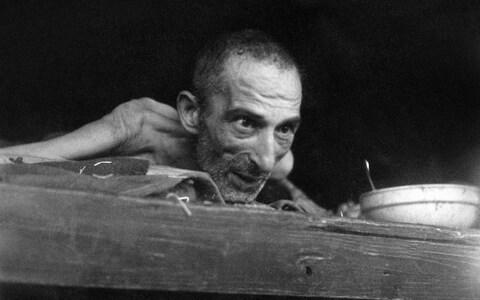Rise in far-Right visits to former Nazi concentration camps

Former Nazi concentration camps in Germany are experiencing a disturbing rise in visits by the far-Right and Holocaust deniers, the head of the memorials at two of the most notorious camps has warned.
“There are increasing entries in our visitor books that describe National Socialism and the concentration camps as useful and good for Germany,” Prof Volkhard Knigge, head of the memorial foundation for Buchenwald and Mittelbau-Dora concentration camps told Neue Westfälische newspaper.
“We even see anti-Semitic slogans or statements such as ‘If the camps were still in operation, we would have no problem with foreigners’.”
Prof Knigge said the camps had also experienced “targeted, prepared disruptions to guided tours” by Holocaust deniers.
Far-Right sympathisers hid in groups of visitors and interrupted guides to question the number of victims or whether the Holocaust took place, he said.

The warning, just days before next week’s 75th anniversary of the liberation of Auschwitz, will add to concerns over the resurgence of the far-Right in Germany.
Buchenwald, near Weimar, was the largest concentration camp within Germany’s borders. More than 56,000 people were killed there, including Jews, Poles, political prisoners and Soviet prisoners-of-war.
The majority died of the horrific and inhumane conditions in the camp. Thousands were executed. Others were killed in Nazi experiments on the effects of poison and incendiary materials like white phosphorous.
Mittelbau-Dora was a forced labour camp that provided slave workers for the factories that produced V1 and V2 rockets. More than 20,000 of its mostly Slavic inmates were killed — many of them literally worked to death.
Prof Knigge blamed for the rise in incidents at the memorials on the nationalist Alternative for Germany party (AfD), whose leaders he accused of “encouraging far-Right speech and thought”.
He pointed specifically to remarks by Alexander Gauland, the AfD leader, who described the Nazi era as a “speck of birds--t in 1,000 years of glorious German history” and Björn Höcke, a senior AfD politicians, who called for a “180-degree turn” in Germany’s culture of atonement for the crimes of the Second World War.
Last year the memorials at the two camps banned the AfD from attending an annual wreath laying ceremony to victims.
The AfD has denied fomenting extremism or Holocaust denial. “Mr Knigge is so attached to his ideas of political friends and foes that he can't even build bridges on such an important day of remembrance,” a spokesman for the party said after last year’s ban.

 Yahoo News
Yahoo News 
